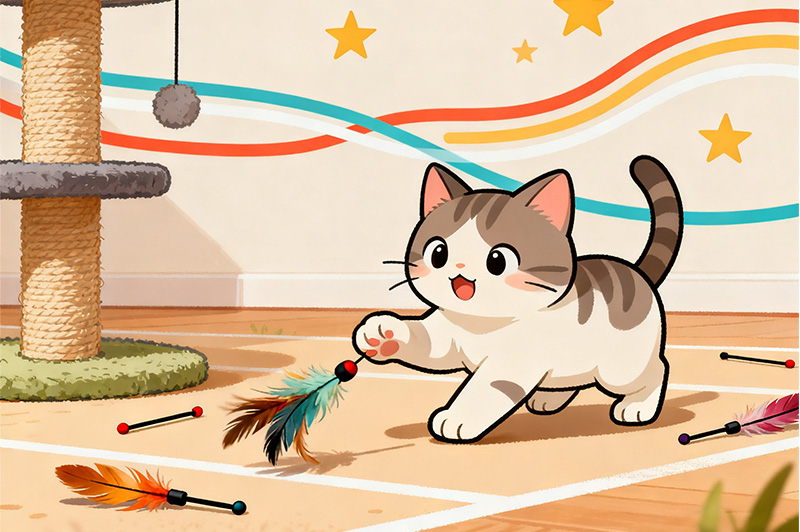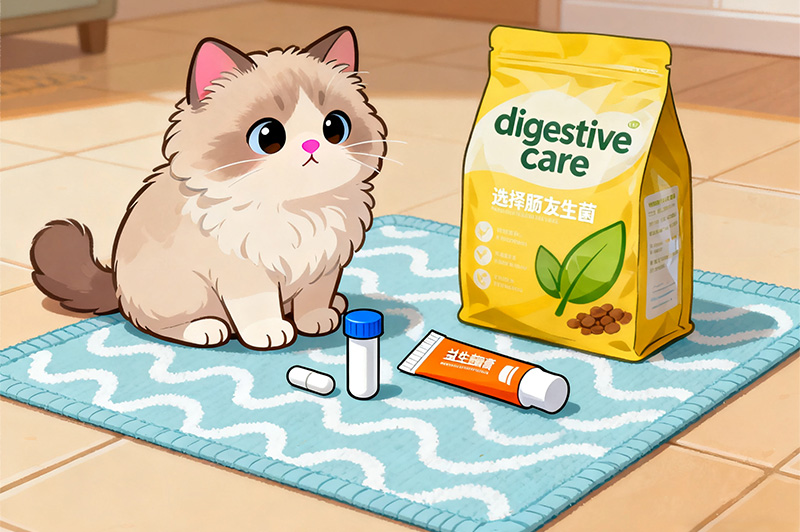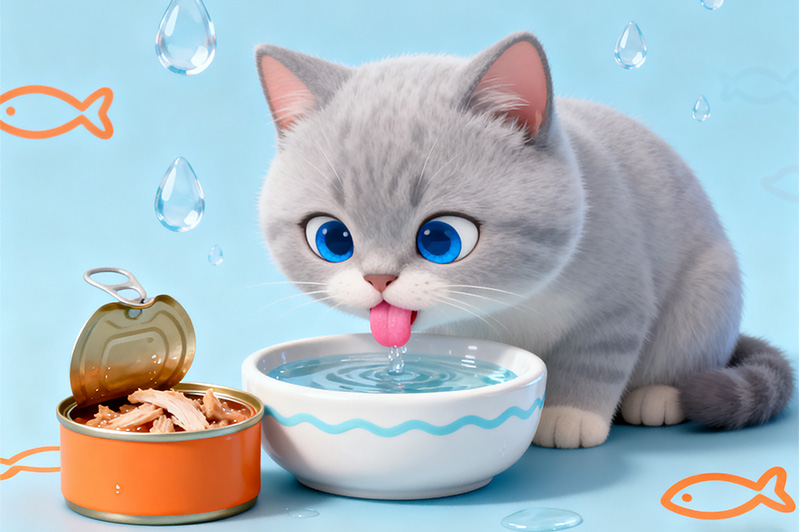Constipation is a common digestive issue in cats that can cause discomfort, reduced appetite, or even more serious health risks if left unaddressed. The good news is that most cases can be prevented with simple, daily care adjustments. Below are 4 easy-to-follow strategies to keep your cat’s digestive system healthy and regular:

1. Boost Your Cat’s Water Intake
Adequate hydration is the foundation of preventing constipation, as it softens stool and supports smooth intestinal movement.
- Adjust their diet: Replace part or all of your cat’s dry food with wet food (e.g., canned or pouch food)—wet food typically contains 70-80% water, far more than dry kibble (which is only 10-12% water).
- Add water stations: Place multiple clean drinking bowls or fountains around your home, especially near areas where your cat likes to rest or eat. This encourages them to sip water more frequently throughout the day.

2. Encourage Regular Exercise
Physical activity stimulates intestinal peristalsis (the wave-like movement that pushes stool through the gut) and helps your cat maintain a healthy weight—both key to preventing constipation.
- Interactive playtime: Spend 10-15 minutes twice a day playing with your cat using toys like feather wands, laser pointers, or crinkle balls. These activities get them moving, burn energy, and may even increase their thirst (supporting tip #1!).
- Environmental enrichment: Add cat trees, climbing shelves, or puzzle feeders to your home. These give your cat opportunities to jump, climb, and explore, keeping them active naturally.
3. Supplement with Multivitamins and Probiotics
Targeted supplements can support your cat’s gut health and reduce the risk of digestive issues like constipation:
- Multivitamins: Choose vet-recommended multivitamin chewable tablets to ensure your cat gets essential nutrients (e.g., fiber, vitamin B) that support digestive function.
- Probiotics: Probiotics balance the good bacteria in your cat’s gut, regulating digestion and easing intestinal slowdowns. For extra support, pair probiotics with a vitamin-enriched nutritional cream—this combination not only aids constipation but can also soothe mild vomiting.
4. Choose a Gut-Friendly Staple Food

The right cat food can proactively prevent constipation by addressing root causes like hairballs or poor gut motility:
- Look for formulas labeled “digestive care,” “hairball control,” or those that include probiotics as a key ingredient. These foods often contain added fiber (to promote regularity) and nutrients that support gut health.
- For cats prone to mild-to-moderate constipation, switching to such a specialized staple food can often resolve or reduce symptoms without extra interventions.
By incorporating these four steps into your cat’s daily routine, you can help keep their digestive system running smoothly and reduce the risk of uncomfortable constipation—keeping your feline friend happy and healthy!




